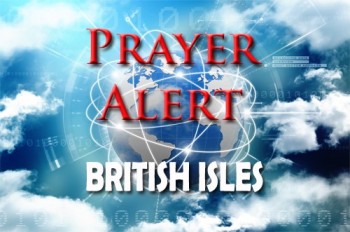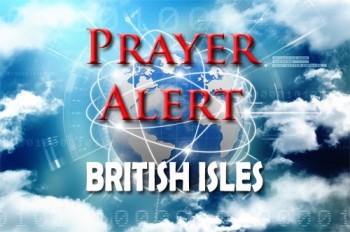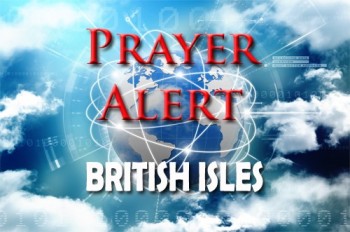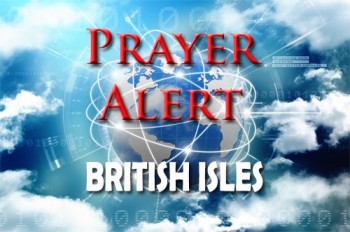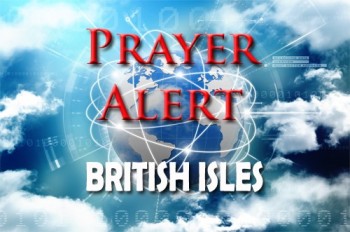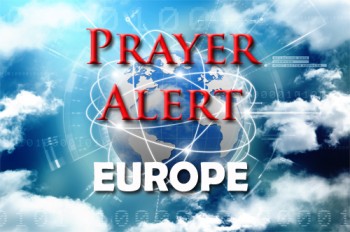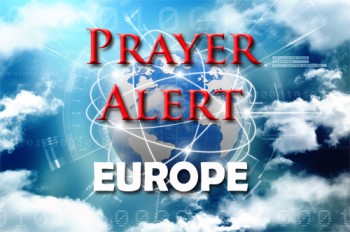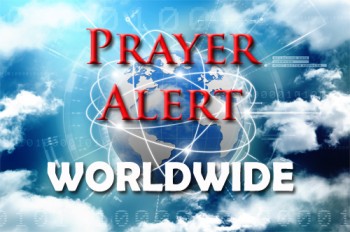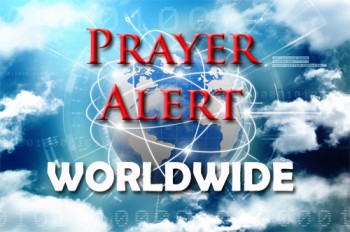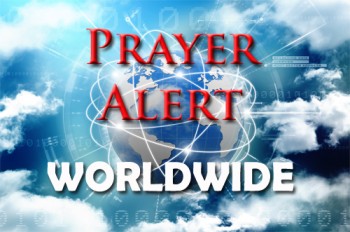
David Fletcher
David Fletcher is Prayer Alert’s Editor.
He is part of a voluntary team who research, proof-read and publish Prayer Alert each week.
If you would like to make a donation towards our running costs, please click here.
The big debate over the past few days has been whether it is safe to open schools to children other than those of key workers or classed as vulnerable. Many are saying, ‘We need to get children back into education, but a locally managed approach using testing and tracing is the only way.’ There will never be ‘no risk’. In a world where Covid-19 remains present in the community, it is about how we reduce that risk, just as we do with other kinds of daily dangers, like driving and cycling. To judge whether schools are safe enough to open, there need to be data with which to make informed decisions. Pray for concurrent accurate monitoring to be developed at local levels to tell us what the daily number of new cases and rate of transmission is. May actual, reliable numbers be what drives policy.
On 20 May Sir Keir Starmer asked the Prime Minister why there had been ‘no effective’ attempt to trace the contacts of those infected with Covid-19 since 12 March when tracing was abandoned. Mr Johnson replied, ‘We have growing confidence that we will have a test, track and trace operation that will be world-beating and yes, it will be in place by 1 June.’ He added that 24,000 contact tracers had already been recruited. The government does not have the luxury of testing and piloting this behind the scenes for months to come, so the system will have to evolve as it goes. On 21 May the NHS said, ‘Time is running out to finalise a “track-and-trace” strategy that would avoid a potential second surge in coronavirus cases.’
Two high court judges have upheld the Government’s decision to allow at-home abortions during lockdown. But it is not over yet. Christian Concern said that their legal challenge has exposed how the abortion industry has captured the Department of Health. The case showed that if pro-abortion lobbyists want something to happen, they can contact their insiders and get it done. One key civil servant in the case worked simultaneously for Public Health England and abortion provider Marie Stopes UK. These are not clinical experts simply advising on best practice; they are campaigners like BPAS executive Ann Furedi, who calls for abortion at any stage, for any reason. Christian Concern want to appeal this case, but more than that, they need to continue to expose the abortion industry’s privileged access to the heart of government and the untold damage caused to women and babies because of their influence.
Its chief executive has said, ‘YMCA’s unique nature is particularly affected by this crisis. Our work stretches across every aspect of the community and throughout people’s lives: whether it is the youth clubs we deliver to thousands of young people, the nursery provision provided to tens of thousands of families, or the health and wellbeing services delivered to the elderly and vulnerable. YMCA supports communities across the country; every hour of every day, through the good and bad times. Our frontline work is significantly disrupted by coronavirus. It is affecting those people who come and go from our services as well as those individuals who depend on it as a lifeline and place to call home. YMCAs are facing a multitude of challenges in keeping our support operational; not least ensuring that our staff and volunteers are safe whilst at work.’
Superdrug has started selling a coronavirus antibody test, costing £69, to the public. They sold out in a few hours. The tests are intended to tell if someone had the virus in the past. The user takes blood samples and posts them off to a laboratory, where it takes 24 hours to produce a result. Medical giant Abbott, which makes the tests, insists that they are not intended to be used by people taking their own blood samples. They have only been found to be accurate on blood samples taken by trained healthcare providers directly from patients' veins. The MP who chairs the parliamentary panel on consumer protection said, ‘Superdrug seems to be playing on people’s fears and that is not right. What people really need is a readily available, easy to use test that is accurate’. She added that the cost is excessive and it is not 100% accurate. See
Archbishop Wojciech Polak has called on the Church hierarchy to launch proceedings following the release of a documentary telling the story of two brothers who sought to confront the priest who allegedly abused them as children. The Vatican is expected to assign an investigator to the case. The film, ‘Hide and Seek’, has been viewed over 1.9 million times on YouTube and is the second documentary on the subject by Marek and Tomasz Sekielski. Poland plans to double jail terms for paedophiles, and the Pope has made it mandatory for clergy to report abuse after victims failed to bring to account those in the Church who were responsible for covering up their abuse. A senior bishop allegedly knew about the allegations for years without taking any action.
David Frost, Britain’s trade deal negotiator, has warned the Cabinet that Brussels talks are heading for collapse. He told ministers to ‘take the moral high ground’ when speaking to their counterparts across the Channel in the face of Brussels stubbornness. He urged them to step up their ‘no deal’ planning in case talks over a new trading arrangement break down. Downing Street is preparing to issue warnings that the UK is heading for an ‘Australia-style deal’ - which in reality means tariffs on imported and exported goods under World Trade Organisation terms. Boris Johnson is expected to tell the EU27 to set new rules for their negotiator Michel Barnier, otherwise any hopes of a deal fade. If progress is not made at the next online UK-EU negotiators meeting there is talk in Whitehall of a British walkout. A senior Government source said, ‘Breakdown is entirely possible.’
Jesus said, ‘The first of all the commandments is, “Hear, O Israel, the Lord our God is one Lord.”’ (Mark 12:29) During Ramadan, millions of Christians around the world and churches and ministries from many denominations participated in the largest ongoing prayer focus for the Muslim world - that Muslims would understand and believe that Jesus Christ is Lord. Ramadan will finish on 23 May, but we can continue to pray that what God has begun in the lives of our Muslim neighbours will continue. May the Holy Spirit linger in their lives. May we continue to send faithful Christian prayers to heaven on behalf of our ‘not yet saved’ brothers and sisters. May we be open to personal and human contact and manifest God’s love through kindness and respect in relationships. Let us ask God to help us to share our faith while explaining terms such as sin, prayer, God, Son of God and faith.
Sarah remembers her childhood fondly. She was close to her parents, who were always loving towards her, and she never saw them fight. She pursued her studies and helped her parents care for her four siblings. Tragically, when she was 16, her father passed away. Sarah was forced to leave school and work so that her siblings could continue their education. Next she met Komakech. He won her affection and they began living together. Sarah thought he would take good care of her family. But she slowly became aware of his violent nature. Within three months he became violent, drinking and abusing Sarah physically, and emotionally. One in two Ugandan women experience spousal abuse. Rates are higher in northern Uganda. To read Sarah’s story of freedom. click the ‘More’ button.
Yemen’s Saudi-backed government has accused the Houthis of covering up a large outbreak of coronavirus in areas that they hold, and has called for urgent global assistance to help their war-ravaged health sector deal with coronavirus. The United Nations warned that the country could suffer a ‘catastrophic’ food security situation due to the pandemic. The WHO said that the virus is spreading undetected among the population in the country, control of which is divided between the government in the south and the Houthi group in the north.

